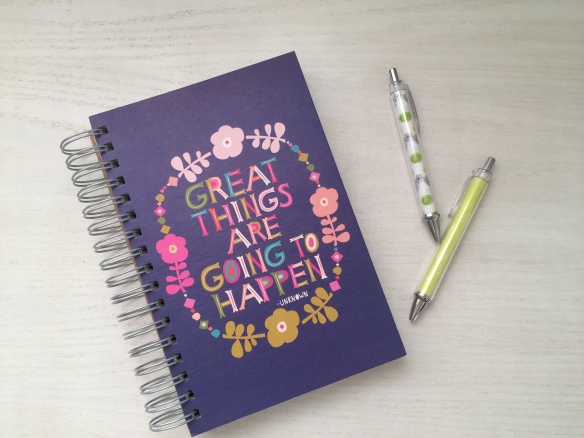 The arrival of a new year often signifies new beginnings for people- a chance to start over again, to refresh, to feel renewed. I feel the same way, although I’ve never really been into New Year’s resolutions. Instead, I tend to focus on certain areas of my life where I feel unsatisfied and make it my goal to work on that throughout the year. The following list contains areas of focus in my life where I have previously found room for improvement as well as some solutions as how to make those changes happen in your own life.
The arrival of a new year often signifies new beginnings for people- a chance to start over again, to refresh, to feel renewed. I feel the same way, although I’ve never really been into New Year’s resolutions. Instead, I tend to focus on certain areas of my life where I feel unsatisfied and make it my goal to work on that throughout the year. The following list contains areas of focus in my life where I have previously found room for improvement as well as some solutions as how to make those changes happen in your own life.
Make Over Your Closet
First, do yourself a favour by getting rid of all of the clothes that don’t do you any favors, and anything else that’s taking up precious wardrobe space. Next. reevaluate the clothes you still have by thinking about them in terms of outfits rather than pieces.
Make Over Your Schedule
Not a morning person? Start here. A great morning routine is key to setting you up for a productive day (even on Mondays) and can save your life when you’re running late. (While you’re at it, taking control of your errands can help cut down on your running-around time.)
Stop Procrastinating
It takes a long time to change a bad habit, so it makes sense to try and embrace your behavior to try and make it work for you. If that doesn’t work, however, you may want to look at what might be the root cause of why you procrastinate and then figure out how you can avoid it in the future.
Start a New Project
What is a project anyway and what is the best way to tackle it? There’s only two simple steps: break down all of the things that you need to do, and then organize them into to-do lists to keep track of project goals and outcomes.
Find Balance
If you’ve gotten to the point where your batteries need a recharge, then it’s time to consider how you juggle all of the different facets of your life. (And if you’re in a crisis this post, this post or this post may help you.) This year, make a vow to build a better relationship with your doctor, practice self-care, get more sleep and learn how to have some fun.
Impress Your Boss
Any boss is impressed with an employee who takes the initiative to improve themselves professionally. If you do decide to take time off this year, make sure you do these things first and you’ll win even more brownie points.
Do Better in Class
If you’re thinking about going back to school in the next year, you may want to read this. But if you’re just looking to go back to school with a new attitude, check out this post for how to take your studying routine more seriously.
 What are some of your New Year’s resolutions? Which areas of your life do you hope to improve? Comment below or let’s keep the conversation between ourselves at keepingbusyb@gmail.com.
What are some of your New Year’s resolutions? Which areas of your life do you hope to improve? Comment below or let’s keep the conversation between ourselves at keepingbusyb@gmail.com.




 Some recent medical issues of mine caused me to rethink a lot of the way I work and how I handle stress. In other words, I needed to recharge my batteries.
Some recent medical issues of mine caused me to rethink a lot of the way I work and how I handle stress. In other words, I needed to recharge my batteries.